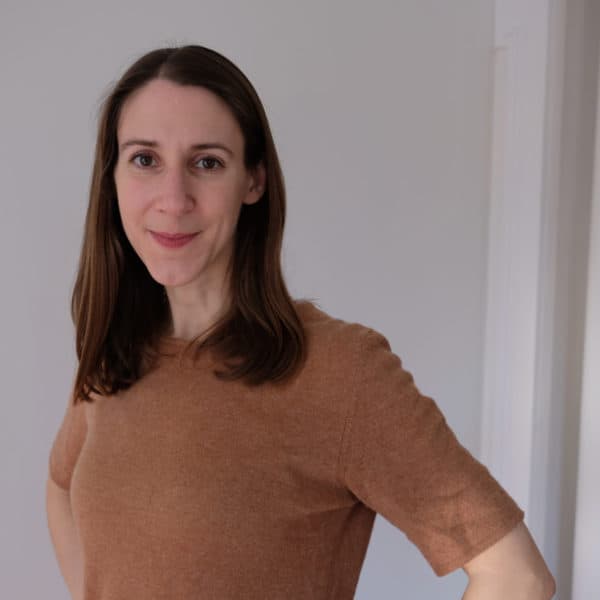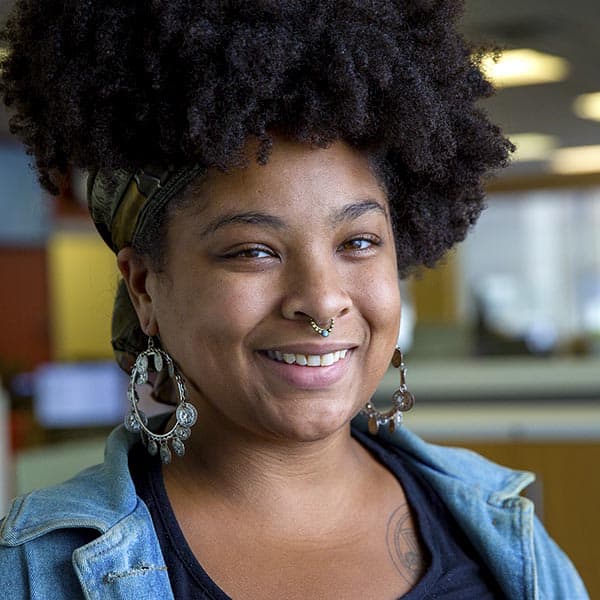WBUR Presents: The 2024 Makers
Earlier this year, we put out a call to the public to nominate local artists of color they feel passionately about — the creative people whose art inspires awe, creates joy and transforms communities.
More than 350 nominations rolled in for all types of artists. Painters. Photographers. Musicians. And for as much as WBUR’s arts reporters and editors track the art scene in Greater Boston, we encountered a load of new talent. It made the process of vetting each nomination both enthralling and agonizing.
Now, we’re excited to introduce you to 10 bright artists from Massachusetts. They span creative disciplines. Some have already been at work for decades, others are newer to their practice. Yet what they all share is an ability to go deep inside themselves to unfurl utterly original works of visual art, music and movement.
Much of the work of an artist is solitary. Late nights mixing paint in the studio, or working out the rhythm of a new tune. The process calls for endless experimentation, trial and error. It also calls for the artists’ willingness to make themselves completely vulnerable by laying bare their interior lives. We see this in the entrancing self-portraits of Feda Eid and hear it in the pulsing jazz of Jonathan Suazo.
There’s something else at play here, too: each of the artists is using their artwork to draw in other people and lift them up. Singer-songwriter Naomi Westerwater is stretching the boundaries of folk music to elevate the voices of queer artists and performers of color. Painter Jameel Radcliffe makes expressive portraits of those who don’t usually see themselves on the wall of a gallery. And filmmaker Mushen Kieta is trying to repair a rift in his family by making a documentary about them.
As the public, all we see are the creative triumphs. But it’s worth remembering the dedication it takes to finish something when it feels like you’re swimming against the current. The feeling of being knocked down only to try again, to scrap weeks of work on a project when it doesn’t match the vision in your mind’s eye.
Advertisement
We hope these stories bring you your own moment of wonder. The thrill of encountering someone in their breakthrough moment, and the pleasure of watching them over the coming years as their creative work blossoms. We’re excited about the promise of this cohort of Makers — what they are making today, and all of the work yet to come.
—Tania Ralli, Assistant Managing Editor for Arts & Culture
Caleb Hawkins
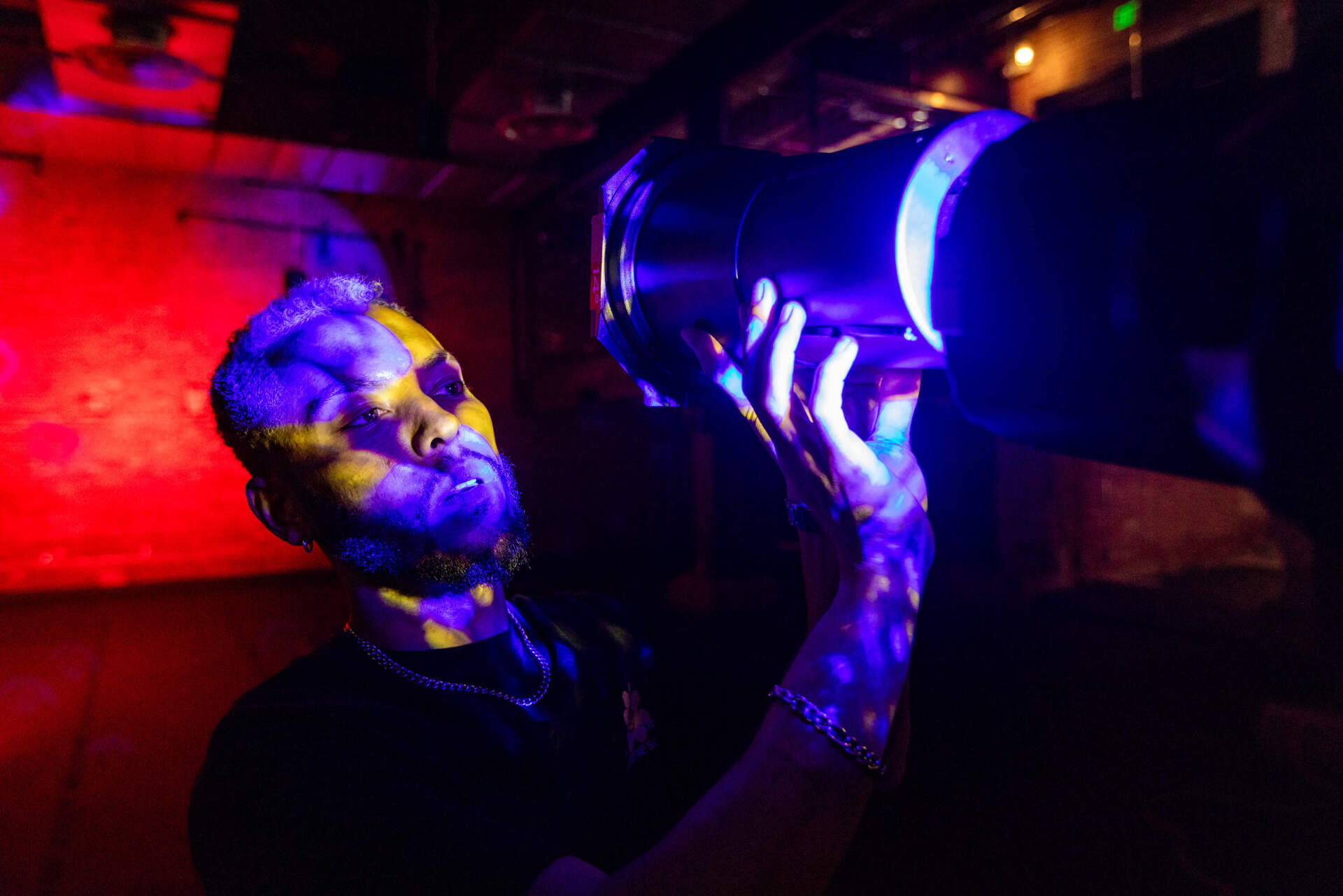
Some artists use paint or clay as mediums of expression, but Caleb Hawkins works with architecture, technology, algorithms and light. As design director at MASARY Studios, he executes luminescent, large-scale art installations at places like Mount Auburn Cemetery in Cambridge and Boston Children’s Hospital. “Light is just such a powerful and cosmic natural element that holds a lot of wonder,” he said.
Chenoa Baker
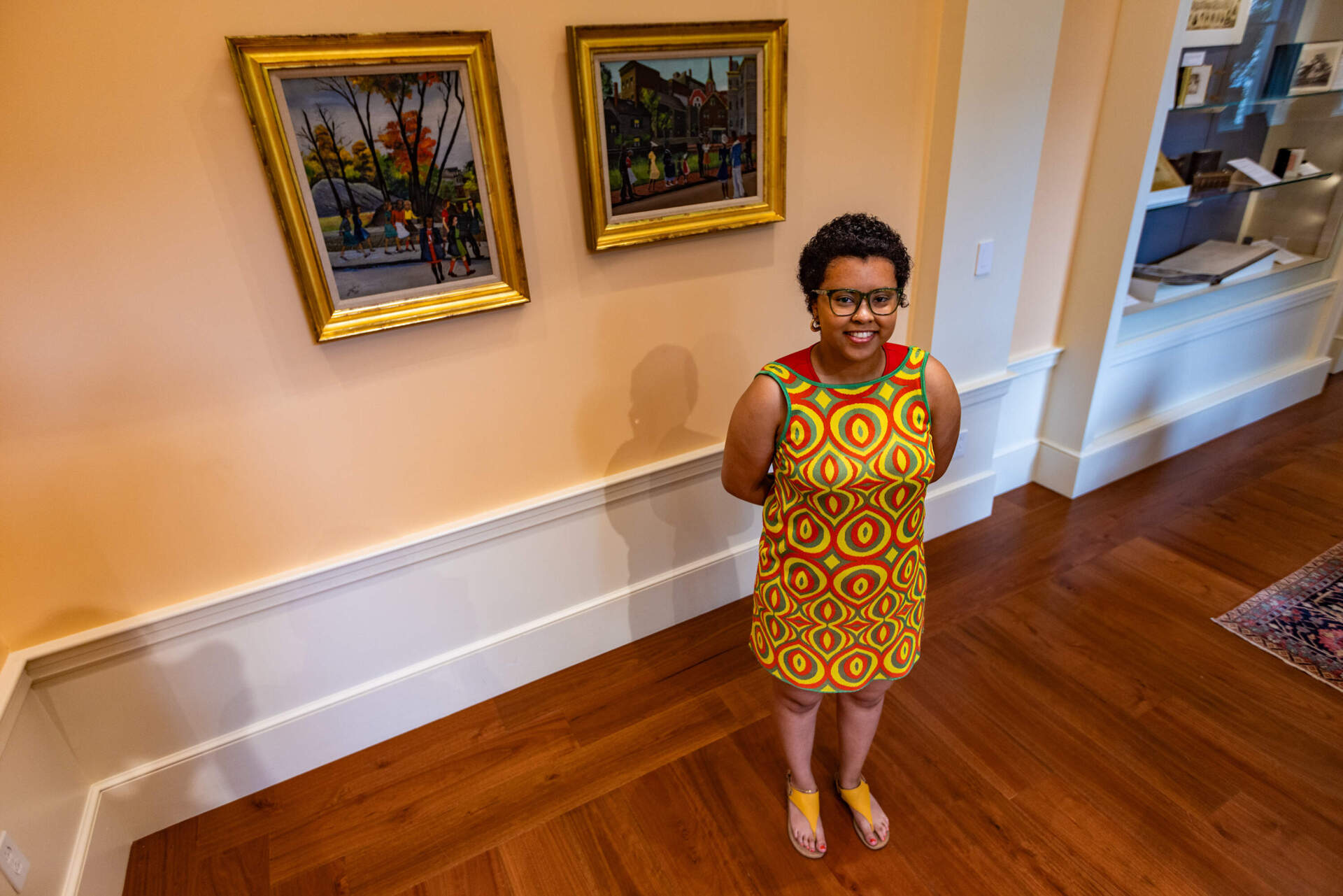
Putting together a museum exhibit takes a lot of behind-the-scenes work, from selecting the art to getting it on the gallery walls. For independent curator and writer Chenoa Baker, much of the work means making sure that artists and communities of color are accurately represented. “A lot of my work has been to repair a little bit of that gap or amplify a lot of those voices,” she said. “Because, a lot of times, they’re not really included in the conversation.”
Elizabeth Mochizuki
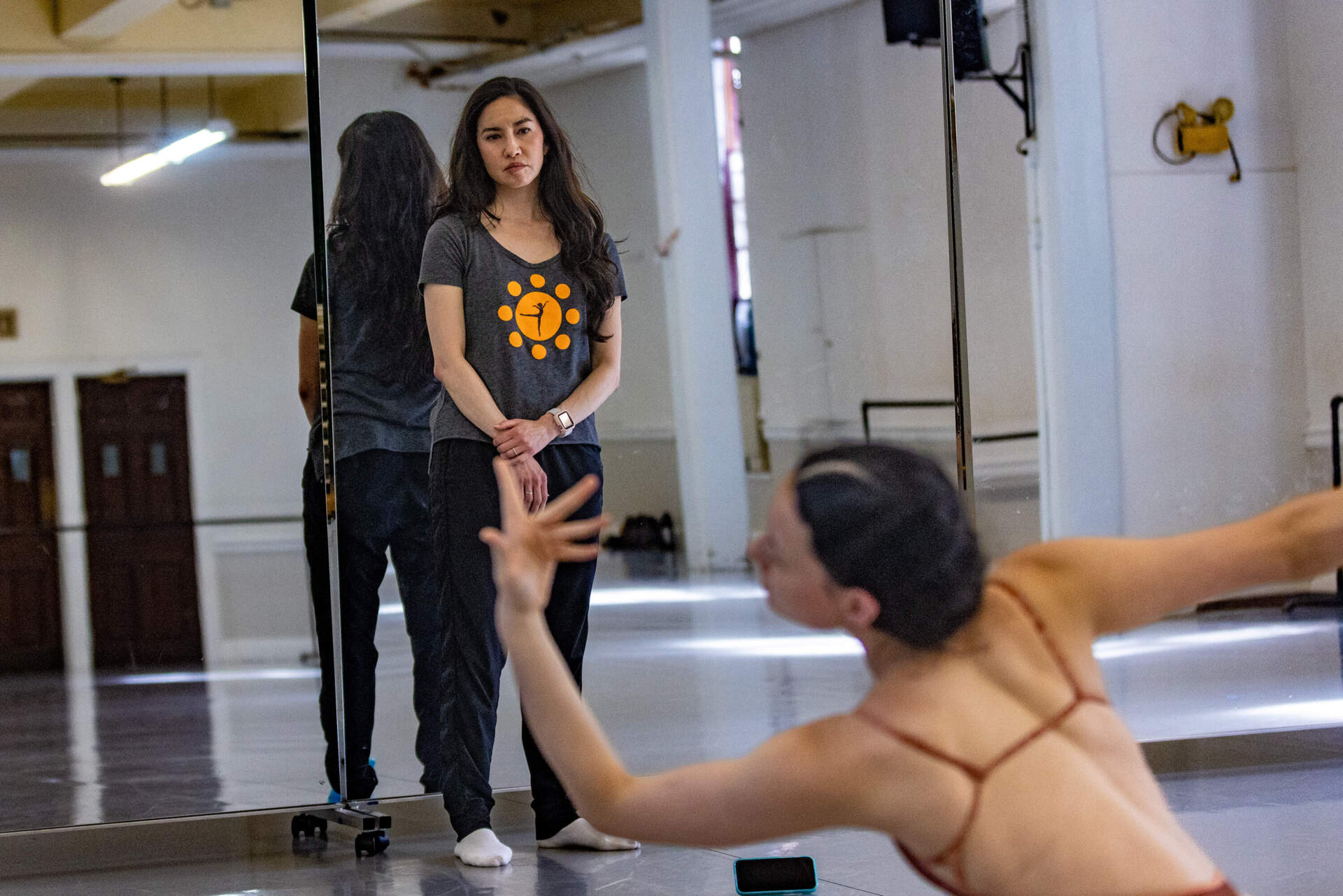
As an Asian American ballet dancer, Elizabeth Mochizuki sometimes felt isolated when she did not see herself reflected in the roles she performed. Now, as the founder of her own dance company, she’s helping Asian American dancers bring more of themselves to the stage. “I thought maybe this is what we need,” she said. “Maybe I can be a part of the solution by creating a space that humanizes Asian Americans.”
Feda Eid
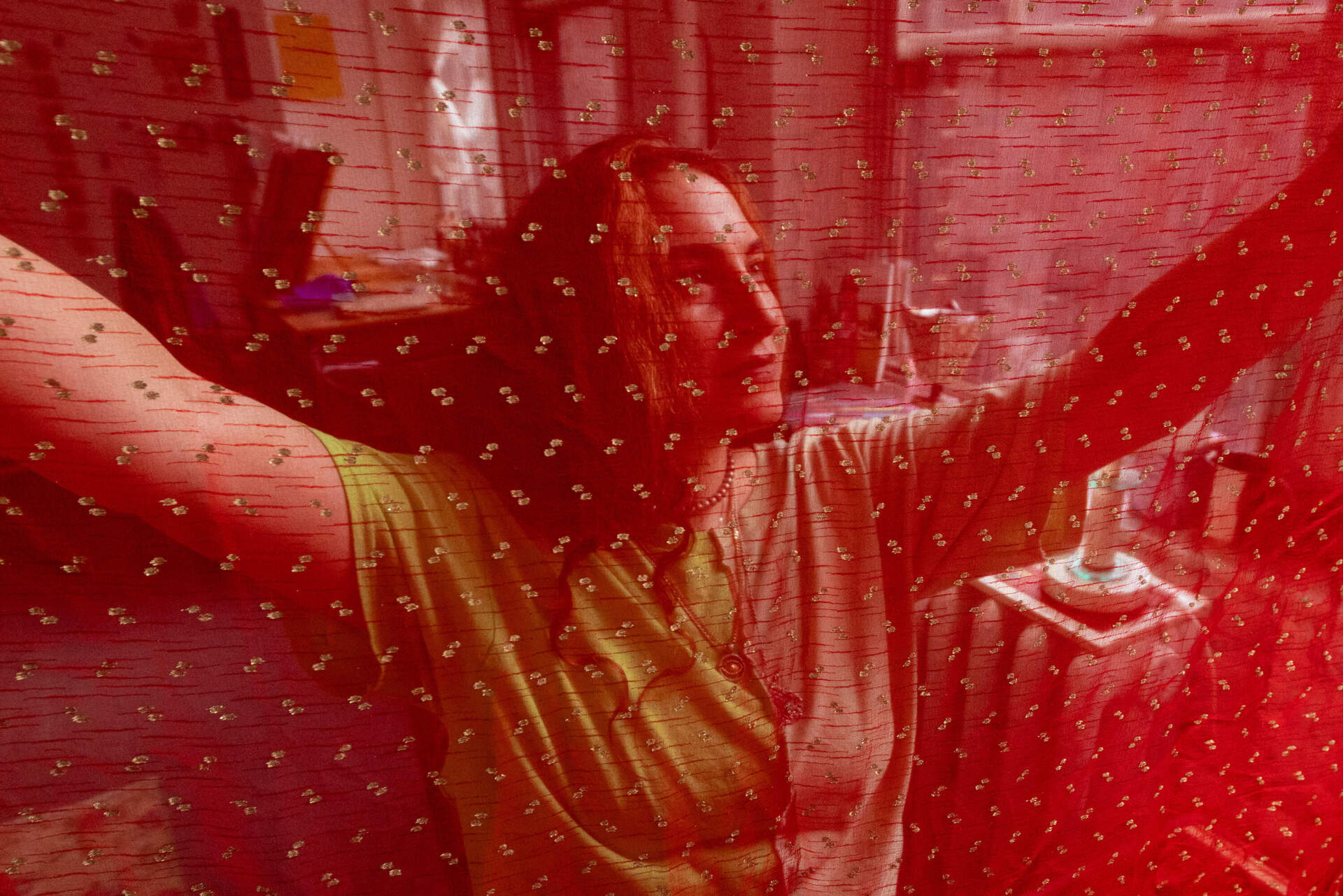
The Quincy photographer and multimedia artist Feda Eid makes arresting self-portraits that explore her Muslim-Arab identity. In the past year, her work has put her at the center of controversies about free speech, the war in Gaza, and the censorship of art. “My family came here and made roots here,” said Eid, whose parents left Lebanon in the 1980s during the Lebanese civil war. “It's all sort of kind of chaotic and messy. But yet, we're still growing here, and thriving here.”
Jameel Radcliffe
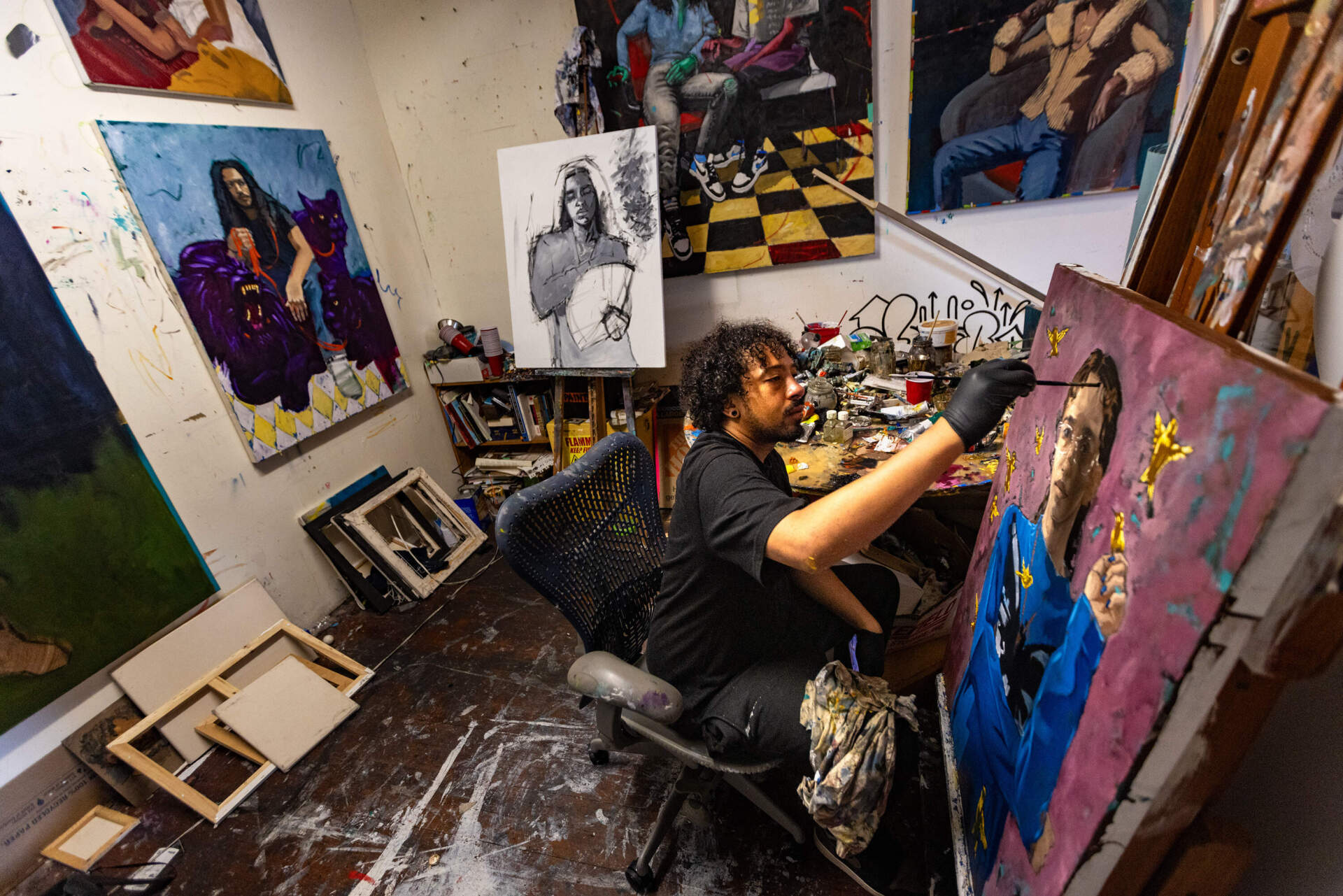
Artist Jameel Radcliffe puts signature elements in his oil paintings, like colorful masks that look ancient and futuristic at once. Sometimes he pairs his subjects with a chosen spirit animal. But what makes the work stand out is who he paints: the teens he mentors. “A lot of my work is — I don't just make it for myself, Radcliffe said. “I really want the people that I'm painting to be excited about it and to have things that they recognize and love. As much as it is something I enjoy doing, it's something that I hope that they can be proud of as well.”
Jonathan Suazo
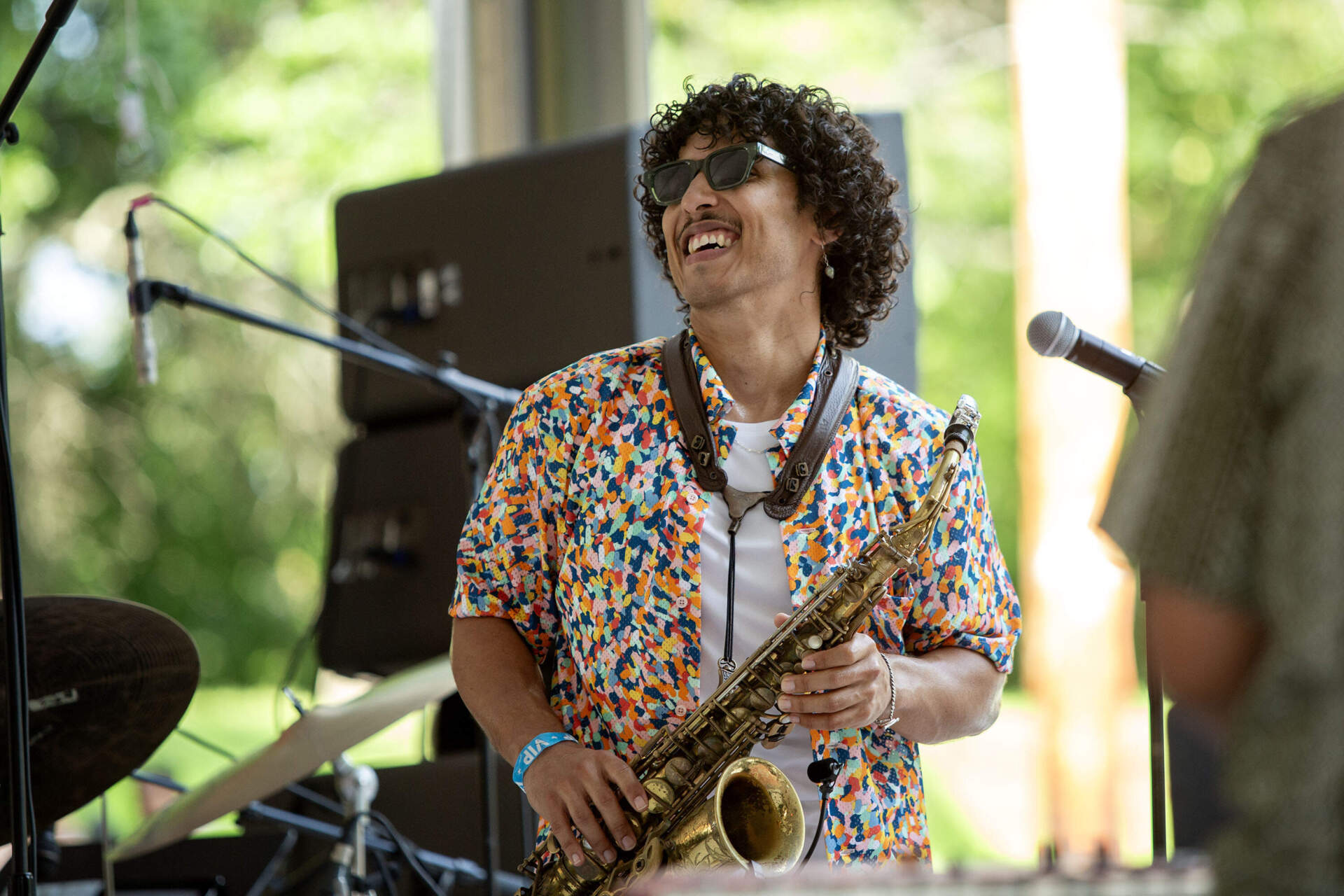
Jazz musicians have been experimenting with Latin rhythms for a long time; it’s hard to come up with anything new. But saxophonist Jonathan Suazo managed to do just that, with his album “Ricano” – a musical effort to connect his Puerto Rican identity with his Dominican heritage inspired by his late father. “Why do I play music? Because my dad moved from the Dominican Republic to Puerto Rico and brought his saxophone with him,” Suazo said. “If it wasn't for the Dominican Republic, I wouldn't be a saxophonist.”
Maria Servellón
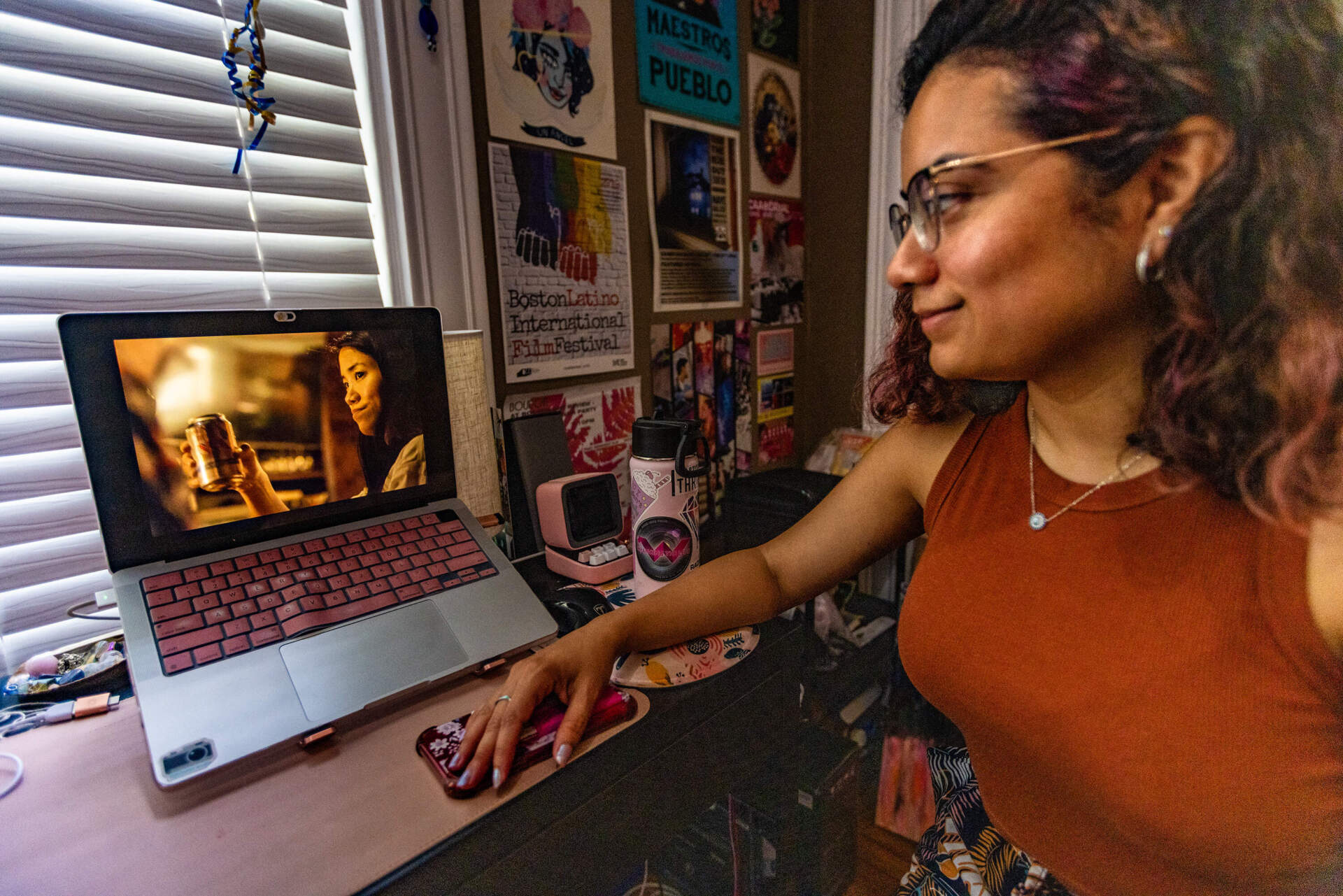
Maria Servellón is a visual explorer. She imbues her multimedia projects and independent films with reflective curiosity and moments of magical realism. As a director, she makes it a point to hire at least 50% women for her casts and crews, along with artists from other communities underrepresented in the film industry. “That's what I really like about independent filmmaking,“ Servellón said, “where you have more of that control.”
Mushen Kieta
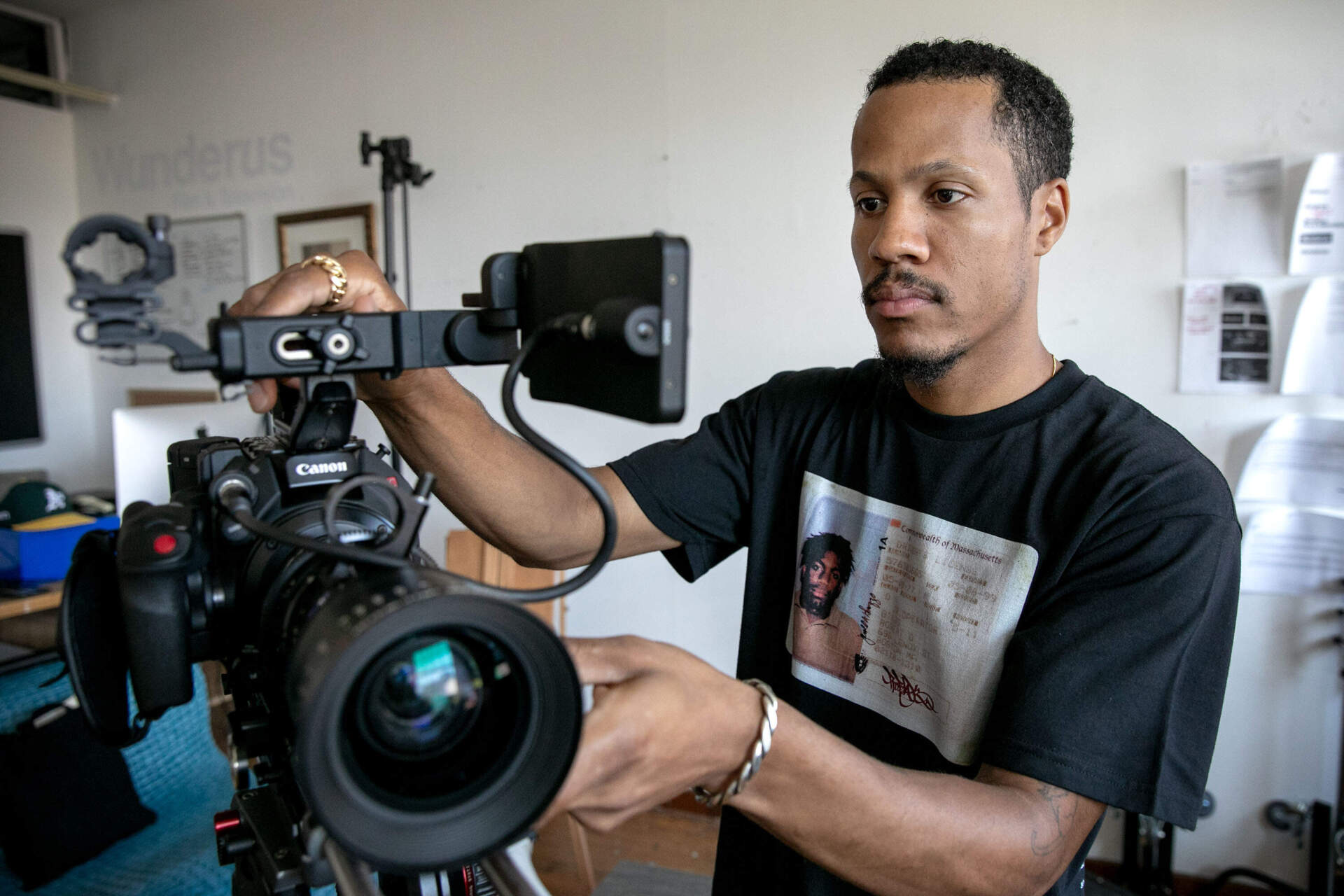
Filmmaker Mushen Kieta has told stories about local schools, a local muralist, and more. His production company has grown into a community for emerging and established artists. Now. he’s turning his lens on his most personal project yet: his family. “I started making a film because my family was divided,” Kieta said. “I figured we don't get along with each other and we can't really talk to each other. Maybe they can talk to me and a camera.”
Naomi Westwater
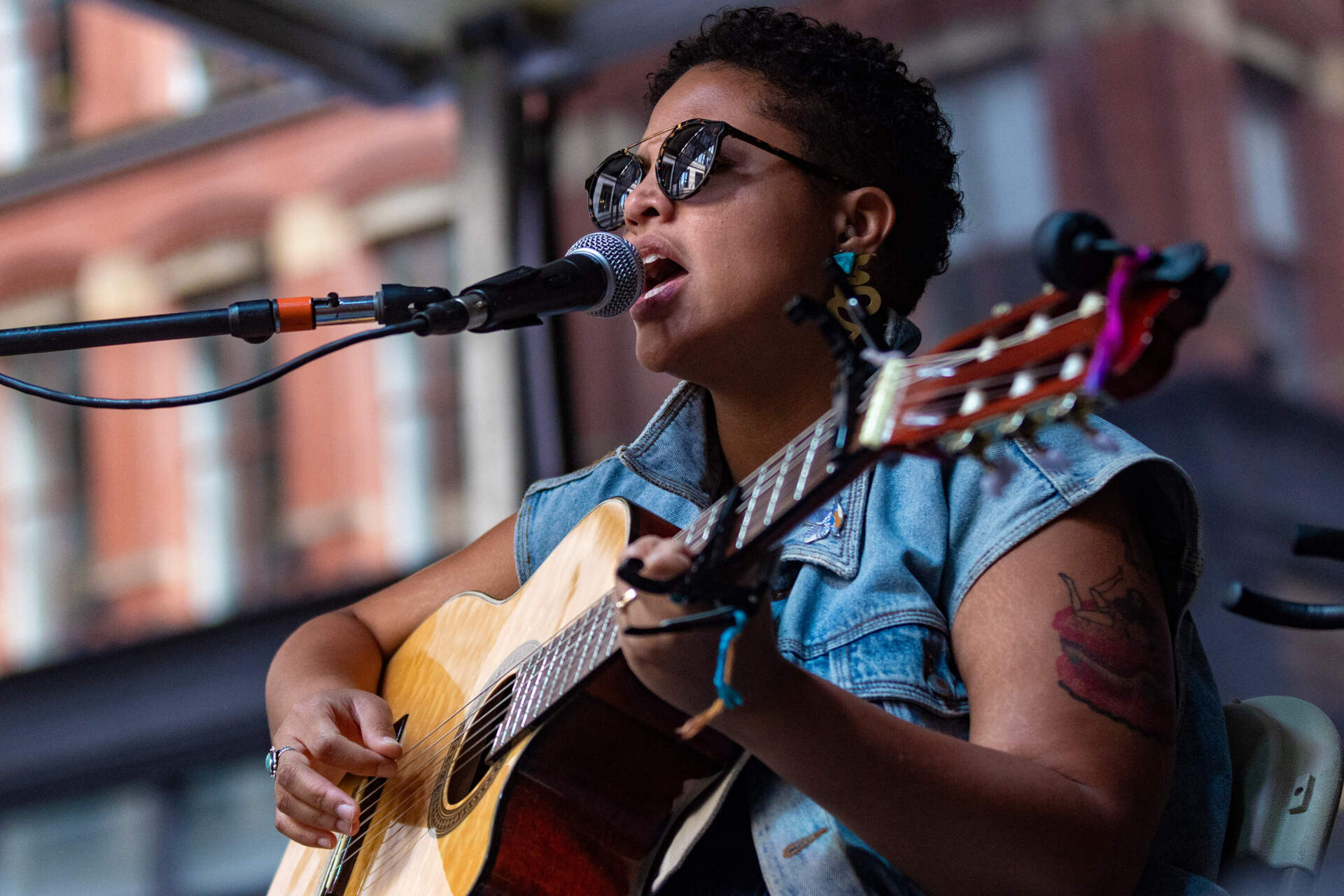
Folk music is often described as the “music of the people” – songs used to pass down regional stories and history. But Brockton-based singer-songwriter Naomi Westwater says the genre favors white musicians. They’re working to expand perceptions of folk music to include people of color and queer musicians. “All modern American music has its roots in Black and Indigenous music,” Westwater pointed out. “People of color have been in all of these genres the whole time.”
Pranav Swaroop
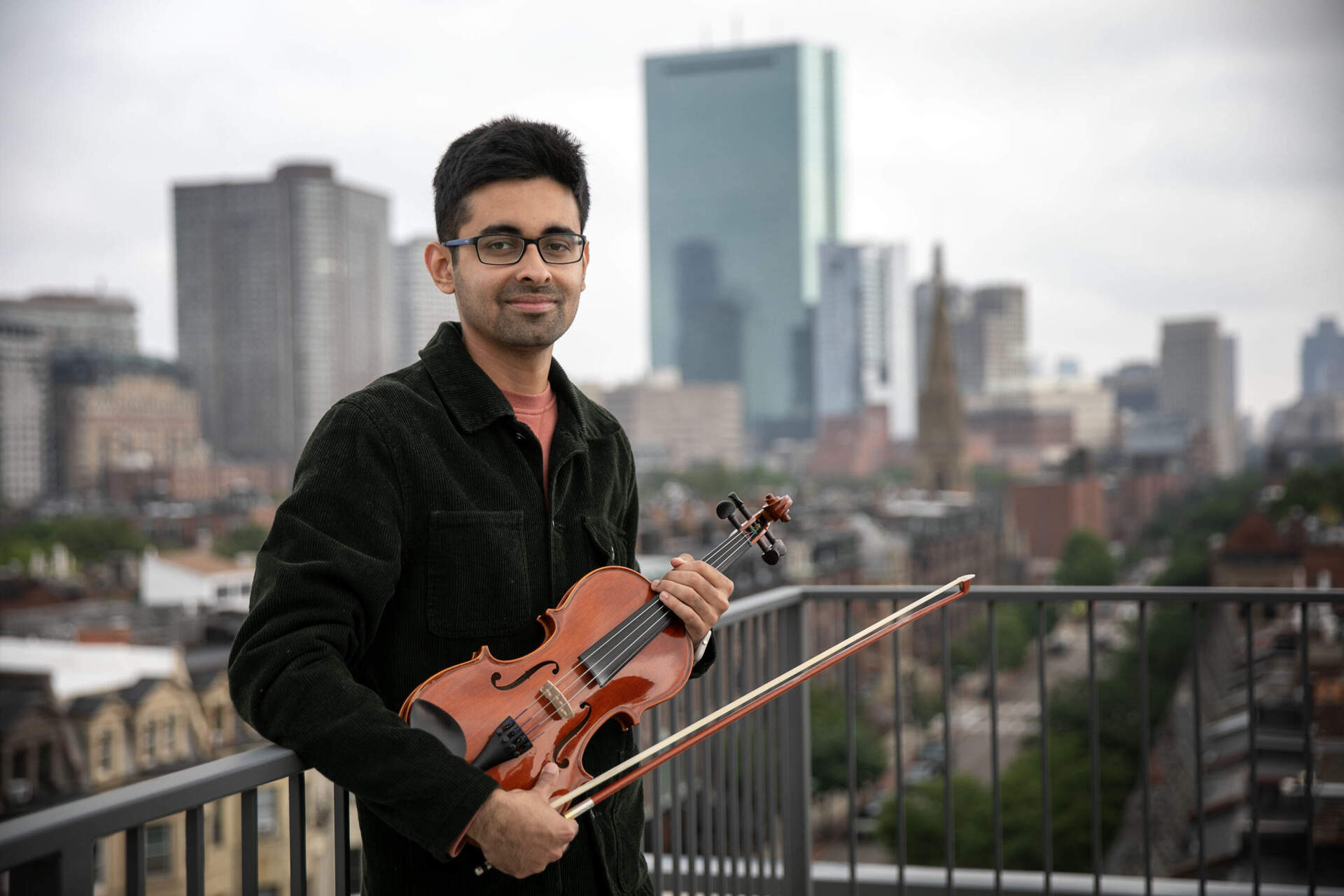
Boston violinist Pranav Swaroop has trained for decades in classical Indian music. The 27-year-old now uses it to cut across genres with a mind-bending mix of contemporary styles with his global fusion band Project MishraM. “If people just forget where they are, and they completely have this new sort of experience and that makes them feel happy and they enjoy what they listen to,” Swaroop said, “I think that's the ultimate takeaway.”

